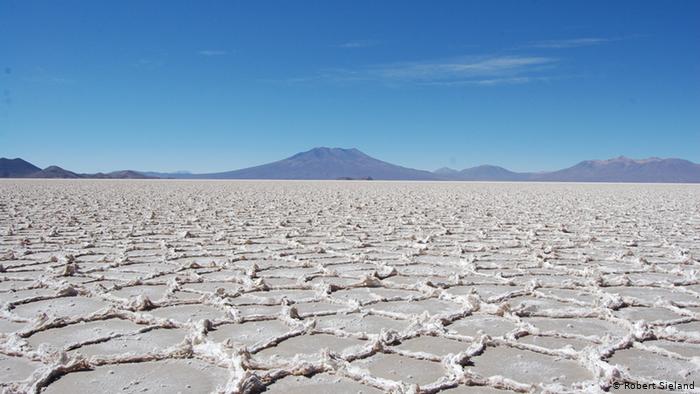All the delays of the EU and the US in the lithium race

Electric mobility has created a real lithium race for batteries: China has the advantage, but the US is trying to catch up with the Inflation Reduction Act. And Europe? Phastidio 's article
While the United States does not seem willing to substantially change their Inflation Reduction Act , which will guarantee almost 400 billion in "green" subsidies over ten years to companies operating in the United States, and while the EU is preparing a response that could see a mix between further easing of state aid and the creation of a "sovereign" fund made up of the residues of the Recovery Plan and little else, but without the coveted (by the Italians) Eurobonds, the western environmental transition discovers new bottlenecks. For example that of lithium.
LITHIUM PRICES DOUBLE
Essential mineral for electric vehicles, the price of which at the end of 2022 has doubled to $75,000 per ton. It is necessary to find new sources and create refineries to process it. All of this, in line with Washington's strategy, without obtaining supplies from Beijing or from any other "non-friendly" country.
As reported by the Financial Times , the Biden administration has offered the Australians of Ioneer a conditional loan of $ 700 million to develop a mine and a processing plant in Nevada. Mining could begin in 2026, but supply contracts have already been signed with Ford and Toyota. Production could be sufficient for around 400,000 electric vehicles a year.
US public financial support for the supply chain, contained in the Inflation Reduction Act , rests above all but not only on benefits of up to $7,500 for buyers of electric vehicles manufactured by companies that source components and raw materials in the United States or in countries with which Washington exchanges under a free trade regime, understood not in the sense of a formal treaty but also only of "friendship" and partnership.
The administration then invoked the Defense Production Act , a law created during the Korean War to direct domestic production towards the war effort, and has so far disbursed 2.8 billion to about twenty companies involved in the electric vehicle supply chain, as well to have activated agreements with Canada, the EU, the United Kingdom and Australia to invest in critical extractive projects.
CHINA HAS THE LEAD IN THE LITHIUM RACE
In this race for lithium and other critical minerals for the electric vehicle supply chain, the United States has to contend with Chinese competition and production capacity but also with internal constraints that we know well in the West. Beijing is aggressively signing agreements in Africa and especially Latin America to procure minerals in less stringent regulatory contexts, to be allocated to its domestic refineries.
In fact, China has 80% of the global lithium hydroxide processing capacity, a structural advantage that is difficult to erode in a reasonable time. It is also necessary to deal with the internal constraints linked to the authorization processes of the mining activity. In the United States this is an objective problem, linked to environmental impact assessments.
Nevada has only one operating lithium mine and another awaits a court ruling following disputes with conservation organizations defending a rare species of wildflower. A similar fate befell a mining project in North Carolina, which failed environmental constraints forcing Tesla to resort to supplies from Canada.
The development of the EV chain requires mining that has an environmental impact, and the creation of processing capacity for these minerals which in turn requires time and money, as well as administrative hurdles. The competition between Americans and Chinese sees the latter having a clear advantage, both due to the apparently minor constraints coming from the domestic territories to the creation of extraction and processing structures, and due to the aggressive Chinese activity in Latin America, the former backyard of Washington, where a real boom in the mining of minerals critical to the transition is expected over the next decade.
THE PROBLEMS OF EUROPE
In between, Europe. Which participates in the financing of extractive projects but which risks being weakened by the attractiveness of American environmental subsidies. At the World Economic Forum in Davos, John Kerry, the White House's special climate envoy, invited the EU to proceed quickly with its own version of the Inflation Reduction Act , to shorten the development time for Western strategy. Because, in Kerry's words, it takes "money, money, money."
Even in our continent, the attempt to open lithium mines and refining plants is subject to strong obstacles from the local populations. An example of this is the 2.4 billion dollar project of the Serbian Jadar mine, which the Anglo-Australian Rio Tinto aimed to exploit but which ended up stalled due to the resistance of local communities, which led to the revocation of the initial authorizations by the Serbian government. Or the cancellation of a mining project in Portugal, by government decision.
To these evident criticalities, which confirm that there is no oxymoronic thing called Green Mining , is added the request of the European Chemical Agency (ECHA) to consider lithium salts as dangerous for human health, and consequently subject their extraction and processing to a more stringent and onerous regulatory framework. Which could tip the balance of costs in favor of imports rather than local production, with all the consequent geopolitical vulnerabilities.
The EU will have to provide answers to these operational and financial critical issues. Bearing in mind that, if the new "sovereign wealth fund" will only be the repackaging of the unspent residues of the Recovery Fund and little else, the individual countries with fiscal capacity will act alone, with a relative threat to the integrity of the single market . At that point, the biggest sacrificial victim will be Italy, with its lack of room for fiscal manoeuvre.
This is a machine translation from Italian language of a post published on Start Magazine at the URL https://www.startmag.it/energia/corsa-litio-vantaggio-cina/ on Sat, 28 Jan 2023 06:37:13 +0000.
